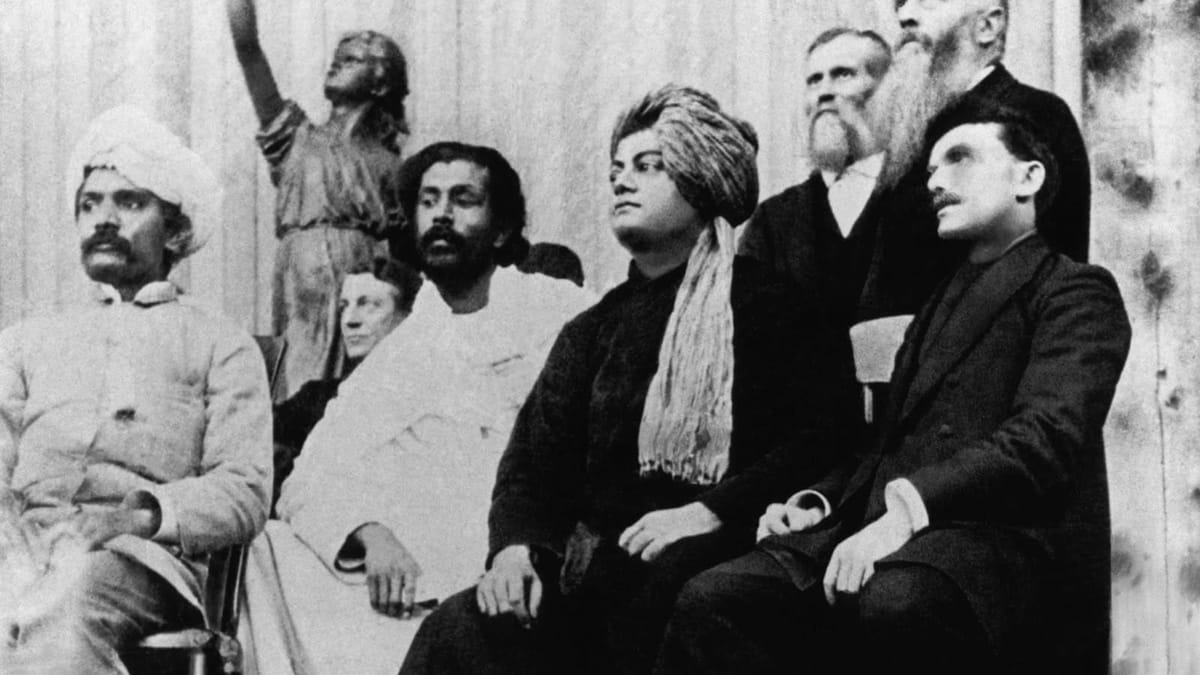Swami Vivekananda, Animal and Polyamory #4

When Scenes from a Marriage was released in 1973, it supposedly led to a spike in divorces in Sweden. However, an often overlooked element is the new divorce laws passed during that time, which went into effect on January 1st, 1974 – making it a more understandable cause for the spike. Despite this, viewers did call up marriage counselors and cited the show. Ingmar Bergman had to erase his number from public directories as strangers were calling him for marital advice. Roger Ebert gave it a full four stars and called it 'one of the truest, most luminous love stories ever made'
Simpler times. A movie about a crumbling marriage beneath the facade of a perfect one, a story about the limits of communication in a couple, and one that made people question their own relationships. One of the greatest film critics to ever live raved about the importance of such a story and considered it necessary viewing.
50 years later - Animal releases in India, becoming a gigantic hit, making over 12 times its budget. It's a laughably poor film, and that would have been okay if it wasn't highly problematic. There is a particularly cringe-worthy scene where the male protagonist explains the concept of an 'alpha male' to an engaged woman, whom he later convinces to break her engagement. The film only gets more problematic from here on, and I don't want to harp on it. Will this film make teenage boys in India more toxic and misogynistic? We don't know that - unfortunately for us, there is no easy way to track rising toxicity as there is for divorces. Fortunately for us, Anupama Chopra, a fairly respected movie critic, said in her review, 'The story is misogynistic, morally bankrupt, and stomach-churning.'
I am here to focus on the title 'Animal' and how one of my friends who loved the movie (yes, I am disturbed by that fact) texted me 'The animal inside him came out - can happen to anyone.' It reminded me of a quote from Swami Vivekananda:
'The animal has its happiness in the senses, the man in his intellect, and the god in spiritual contemplation.'
In a society where we are constantly inundated to overindulge with each of our senses, isn't this proverbial Animal that my friend and one of the greatest mystics of all time are referring to - the prominent archetype rather than being one that we warn people not to veer into?
The answer is a resounding Yes if you watch this film and then see how it was received by the largest democracy (arguably) in the world. In his seminal book, 'Amusing Ourselves to Death,' Neil Postman had a brilliant line about this:
'We do not measure a culture by its output of undisguised trivialities but by what it claims as significant.'
That whole book is a bone-chilling prophecy if you read it now, especially considering what awaits us in the upcoming election cycles around the world in 2024. But if 'Animal' is an indication of anything, it is this: we are devolving into a society addicted to images over thinking, to trivia over seriousness, to content over art, and to the war of words over the dance of ideas. We, with what we consume, are telling future generations what we want to produce: a numb, ever-compliant class of people who live on the perpetual treadmill of pleasure-seeking, where entertainment takes precedence over progress – where the pornification of culture reaches its final form. Huxley warned us about this with A Brave New World but we got distracted by the wrong dystopian novel.
Speaking of pleasure seeking - enter Polyamory.

You can't live in coastal elite America right now and not encounter someone talking about or even worse be a practicing member of the resurgence of Polymary – also what I like to bucket under 'Ideas which sound great in theory but will implode in action'. Post modernism is taking no prisoners and of course marriage had to be impacted by it. It has been covered by New York Times, Wall Street Journal, Time, The New Yorker, and More, a buzzy memoir by a Park Slope wife and mother, Molly Roden Winter. From all my readings on this topic, this paragraph by Kay Hymowitz, puts the nail in the coffin.
Like just about every sexual practice, polyamory has a long history. In the 19th century, utopian religious communities like Oneida in upstate New York practiced “complex marriage.” The Sexual Revolution of the 1960’s also introduced experiments in communal living and sexual partner sharing. These efforts were short-lived; the communes generally succumbed to the very same desire for novelty that polyamory itself was supposed to satisfy. The more philosophical-minded polyamorists of today know all that, but they view themselves as coming from a different place. They practice what they call “ethical non-monogamy.” Source
Ethical Non Monogamy is giving Designed to be Deleted - the tagline for Hinge.
Polyamory to me is a cope, like Atheism. A highly abstract concept, which can only be grasped and practiced by the most intellectually and emotionally evolved amongst us – which also I doubt, but I am not of that class of people, so can't judge. Yet it is preached and practiced by people who can't cope with their mortality and neither can they commit.
That's why NY Mag could have chosen anything but cats for their cover story. At least cats get multiple lives, not like the mere mortals who practice polyamory to maximize the pleasure they can get from these finite lives they are forced to reckon with.
Pleasure seeking as a primary goal is the realm of animals. Dissolving the boundaries between what it means to be human and what it means to just tend to our animalistic desires doesn't bode well for anyone - especially children, the ones who will have to rebuild the world we are so vehemently breaking down. It was Swami Vivekananda's birthday yesterday. In his very short but highly influential lifetime, he taught us many things. But the one thing he warned us against was the relentless pursuit of pleasure.
Pleasure is not the goal of man, but knowledge. Pleasure and happiness come to an end. It is a mistake to suppose that pleasure is the goal. The cause of all the miseries we have in the world is that men foolishly think pleasure to be the ideal to strive for.
Next time you meet someone who gloats about Polyamory or Animal - engage with them on the topic of pleasure seeking. Maybe the light of knowledge will shine a shade brighter when you do that.
See you next week.